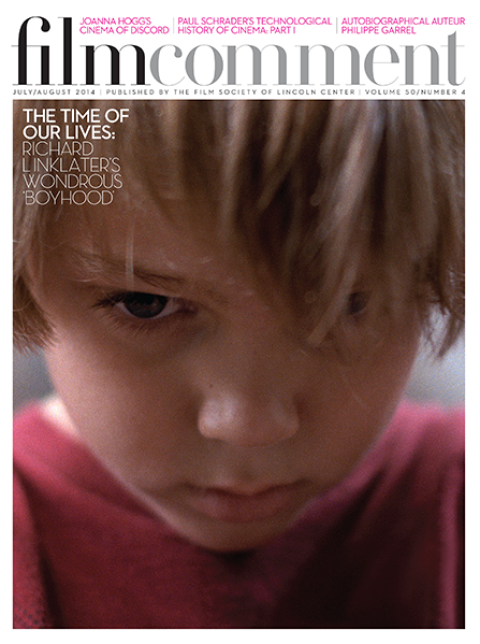
If Level Five, originally released in 1996, could be reduced to essentials, the pungent, bracing ingredients of its perfect Crème de la Chris Marker recipe would include: virtual realities and the immaterial figurations of the Internet, the fateful Battle of Okinawa in 1945 (as concrete history, as disremembering, and as a potential video game), mass suicide and cultural dictation (vis-à-vis the shifting meanings of “sacrifice”), a fable-like tale behind David Raksin’s composition of the theme from Laura, a terrifying bullfight (two bulls roped together head to head, goaded on by grunting trainers), tourists guided through the bunkers of Okinawa like chattering lemmings, Yves Klein blue horizons, computer- generated voices reminiscent of Alphaville and Stephen Hawking, prophetic networks of knowledge and (dis)information, masks/avatars draping counterfeit skin over old ceremonies, grainy footage of women jumping off cliffs like people leaping from the Twin Towers…
Wait, stop—that hadn’t taken place yet, 9/11 was still years away. All the same, as a filmmaker Marker loved to frame the present retrospectively, looking back into the heart of this teeming techno-ecosphere from the vantage of an imminent—and surely immanent—future. Much of Level Five is narrated by the wonderfully rueful and rumpled Catherine Belkhodja, as “Laura,” in the manner of a recurring Skype conversation with, or message for, a phantom Marker. (Skype didn’t exist yet either, but Level Five proceeds with this serene sense of higher technology’s inevitable mundane pervasiveness.) Laura’s is a ghost-to-ghost call, which Marker periodically addresses or parries. Then after finally, wearily, pronouncing a eulogy that could be for him or might be her own, Laura dematerializes abruptly and it is Marker who remains anchored to this island Earth to wrap up this virtual obituary. The futuristic ethnologist/phantom of the Internet manages to cheat death even as he ponders its bottomless ramifications.

This ethnologist also functions as an ethicist. Citing Rabbi Huna’s Talmudic formulation, Laura explains: “God always sides with the persecuted” even when “a just man persecutes a bad man.” C.M. is in pursuit of the spiritual dimensions hidden within a grossly materialist age—the persistence of poetry, the unappeasable hunger for justice, the resolute intuition that there are deeper and higher levels of being and meaning right on the tip of our inadequate, antiquated imaginations. Marker fashions an incredibly prescient sensorium here. Level Five encompasses the passage of time, wherein the latest machinery of the late 20th century feels right on the cusp of seeming as antediluvian as the hand-cranked cameras of The Great Train Robbery, and a set of displacing circumstances that foretell the shocks of our own accelerating social-cyberspace odysseys.
Intimacy is Marker’s paramount weap-on: Belkhodja looking straight at the audience, sounding as casually quizzical as one’s dearest, oldest friend; Marker himself not so much speaking to us as making it seem like we’re listening to the playback of our own subconscious. (Why can’t we be so articulate and droll and substantial in our waking lives?)
The most extraordinarily contemporary thing about Marker’s intricate matrix (in a William Gibson rather than a Wachowskis sense of the concept) is how beautifully it lines up with and enlarges the contexts of recent films. Of course Pussy Riot: A Punk Prayer owes an obvious and acknowledged debt to the great director (there, it is history itself unfolding before our eyes that seems to be paying homage to Marker). But We Steal Secrets, Computer Chess, and especially Her are all affectingly previewed in Level Five. When we incontrovertibly arrive in the bright, flashing World of Tomorrow, I’m positive that scrawled on the walls of the New City (like the World War II “Kilroy” drawings or the graffiti that popped up all over Paris: “RIP Chris Marker, 1921-2012”) will be: “C.M. was here.”








